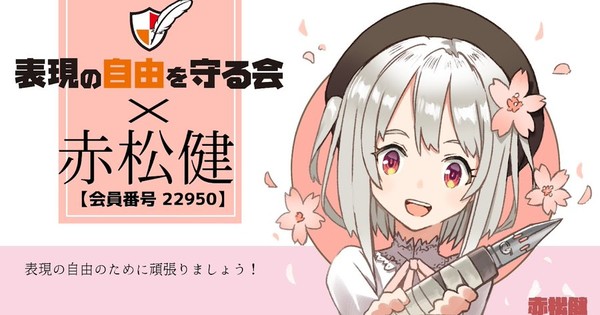Sanseitō: Authorize government to ensure manga, anime, games’ “healthy development as culture”

©赤松健
With the Japanese Upper House elections set for Sunday, a new policy platform involving manga, anime, and games from the ultra-conservative Sanseitō party came to light earlier this week. X (formerly Twitter) user @masanews3 posted a screenshot of a Sanseitō’s policy measures for these fields and asked, “Are you going to create a [Sanseitō founder Sōhei] Kamiya-first dictatorship? Aren’t you going overboard in disrespecting the works and rights of creators?”
Under these policy measures, the party aims to, “instead of judging the value of manga, anime, and games based on economic rationality, delegate authority to the Ministry of Education, Culture, Sports, Science and Technology to ensure their healthy development as culture.”
As of press time, the X/Twitter post critical of Sanseitō’s position received over 300 replies and over 11,000 reposts. The replies were generally also critical of this policy measure. Several people involved in the manga, anime, and game industries also quote-reposted the post with their own thoughts — notably, Amai Seikatsu: 2nd Season manga creator Hikaru Yuzuki, The World is Mine manga creator Hideki Arai, and Library Wars novelist Hiro Arikawa.
Yuzuki called into question what “healthy development” is: “If they carry this out, will they also change the constitution? Can we really allow a political party that doesn’t even seem healthy to judge the healthiness of our work? What does ‘healthy’ mean anyway?” Arai simply said, “Hahaha … I can criticize this, right?”
Arikawa, in turn, likened Sanseitō’s policy platform to her novel series Library Wars. Saying, “The claims are worse than I expected, and they’re shocking. It’s truly alarming for the government to try to prune and control culture.” She continues, “My humble wish that Library Wars would not become a prophetic story is threatened. It’s a silly story with an implausible premise, which is why it’s a fun read.”
The full policy proposal on Sanseitō’s website reads (translated):
Further develop and build an industrial base both domestically and internationally by treating manga, anime, and games as Japan’s cultural assets
Japan’s manga, anime, and games industries earned 4.7 trillion yen from overseas in 2022, a scale comparable to Japan’s semiconductor exports. We will position these as core industries for Japan and support their further development. Furthermore, manga, anime and games have gone beyond mere entertainment and have become important tools for shaping Japan’s cultural diplomacy and international influence. We will strategically utilize these cultural assets to deepen mutual understanding with the world.
Main measures:
• Human resource development and improvement of working conditions (improving specialized education, improving working environment).
• Promoting overseas expansion and international exchange (supporting entry into overseas markets, promoting international co-production).
• Regional revitalization and tourism promotion (regional revitalization using anime, promoting anime tourism).
• Protection and utilization of intellectual property (proper management of copyrights, appropriate compensation to creators).
• Instead of judging the value of manga, anime, and games based on economic rationality, delegate authority to the Ministry of Education, Culture, Sports, Science and Technology to ensure their healthy development as culture.
Sanseitō posted a condensed version of the policy measures to its X/Twitter account on Wednesday and added, “There have been criticisms that this would hand over the rights to creative works to the state, but this is not our intention.” As of press time the post has garnered just over 200 replies and over 3,100 reposts. While comments to the post are mixed, they skew heavily towards support.
Although Sanseitō claims the government will not retain the rights to creative works, the phrasing of its bullet point is odd. One could interpret the party wanting to fund the arts. However, phrases such as “delegate authority to the Ministry of Education, Culture, Sports, Science and Technology” and “healthy development as culture” calls into question if the party is aiming to censor manga, anime, and games. Taking into consideration other policy platforms by Sanseitō are anti-LGBTQIA+ and nationalist, what does “healthy development as culture” mean?
While only speculation, portrayals of the LGBTQIA+ community or stories of Japanese indigenous tribes, stories critical of Japan, or even stories based on other cultures could be deemed “not culturally Japanese” works. Thus, works touching on such topics may not receive funding, be removed from public spaces, or become censored by the state if the proposal is passed by the national government. In other words, publications that exclusively run same-sex stories, works like Senpai is an Otokonoko (with its portrayal of both the male protagonist preferring to dress in women’s clothing and LGBTQIA+ relations), and Golden Kamuy (as it is based on the Ainu people) may be deemed “not culturally Japanese.”
Whether or not Sanseitō will be able to enact its policy platform surrounding manga, anime, and games is an open question, given its national standing. While the party has a 5.9% approval rating according to a July 14 national NHK poll, it faces competition from the center-right Liberal Democratic Party (LDP) and Komeitō parties. A July 15 Asahi Shinbun article projects the LDP and Komeitō to win 75 seats in the Upper House but fall short of a majority coalition. However, the newspaper projects Sanseitō will expand its presence in the Upper House from one seat to seven. The news outlet does not mention if Sanseitō will align itself with the LDP and Komeitō to help push the Upper House to a conservative majority following the elections.
Note: Ken Akamatsu, who posted the illustration above, is the first manga creator to become a member of the House of Councillors for the LDP in July 2022, and later the Parliamentary Vice-Minister of Education, Culture, Sports, Science and Technology last November.
Sources: Sanseitō’s website, Sanseitā’s X/Twitter account, Asahi Shinbun, Ken Akamatsu‘s account, @masanews3’s X/Twitter account, Hikaru Yuzuki‘s X/Twitter account, Hideki Arai‘s X/Twitter account, Hiro Arikawa ‘s X/Twitter account via Hachima Kikō
